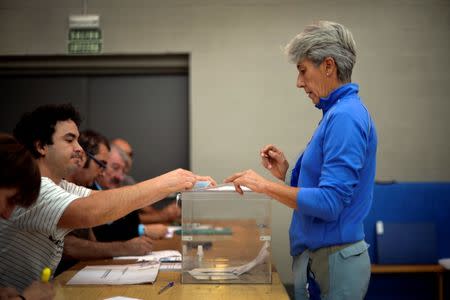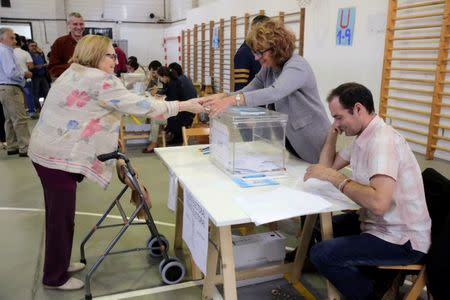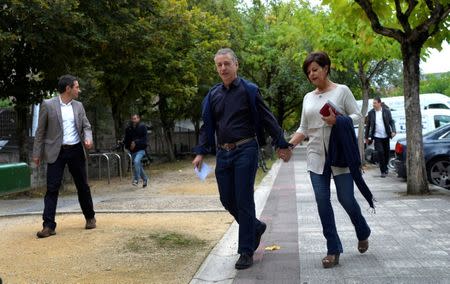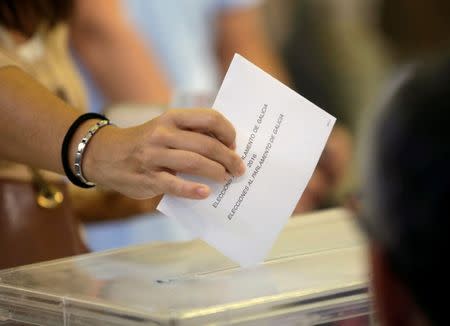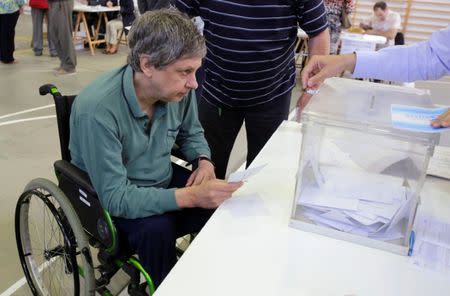Spanish regional elections fail to break political deadlock
By Miguel Vidal and Vincent West SANTIAGO DE COMPOSTELA/BILBAO, Spain (Reuters) - Spain's regional elections reinforced the centre-right People's Party (PP) on Sunday while dealing a blow to the opposition Socialists but failed to signal a clear path to avoid a third nationwide vote in December. Two inconclusive general elections in December and June have plunged politicians into months of fruitless negotiations to try to assemble a government. Their inability to form a coalition means the country could be headed for a third election. The ballots in the northern regions of Galicia and the Basque Country boosted acting Prime Minister Mariano Rajoy while the Socialists lost seats in both regions, but it remains to be seen if the results lead the Socialists to abstain in any future parliamentary vote of confidence to allow Rajoy a second term as leader. Rajoy's PP easily romped to an absolute majority in his native Galicia, a conservative stronghold. The PP have ruled this rainy, northwestern region for most of Spain's four-decade democracy. The conservative regional party, the Basque Nationalist Party, won most votes in the Basque Country, as expected, although not enough to rule by majority. It will now seek a coalition partner, most likely the Socialists. PODEMOS OVERTAKES SOCIALISTS In both ballots, the Socialists lost seats from previous elections four years ago, ceding votes to anti-austerity newcomer Podemos ("We Can"). The poor results for the 137-year-old social democrat group will make it harder for leader Pedro Sanchez to form a coalition with Podemos and market-friendly Ciudadanos at national level, something he failed to do in any case following December's general election. The Socialists hold a leadership meeting on Oct. 1 to review their party's position on government talks in Madrid. The party has steadfastly refused to abstain in a parliamentary vote of confidence to allow Rajoy to take a second term as prime minister in a minority PP-led government. Sanchez goes weakened into the Socialist leaders' forum after Sunday's results and the party's poor showing may re-open an internal leadership war. It will become clearer after the gathering whether the Socialists will change their position ahead of the Oct. 31 deadline to form a government before a third election is called. Polls show a third election is likely to favour the PP, although stopping short of handing Rajoy a majority, making another hung parliament with more negotiations to form a coalition likely. (Writing by Sonya Dowsett; Editing by Adrian Croft)

